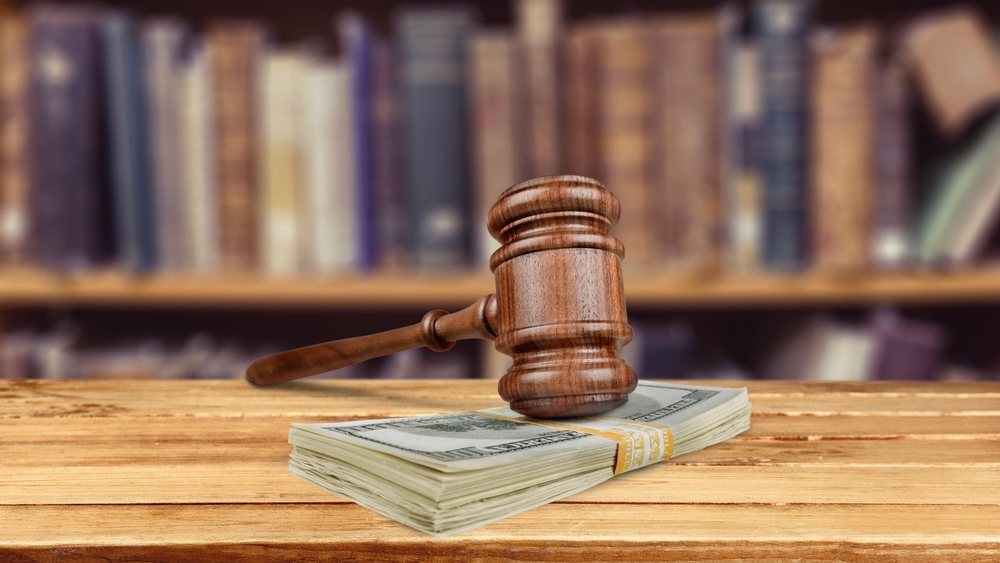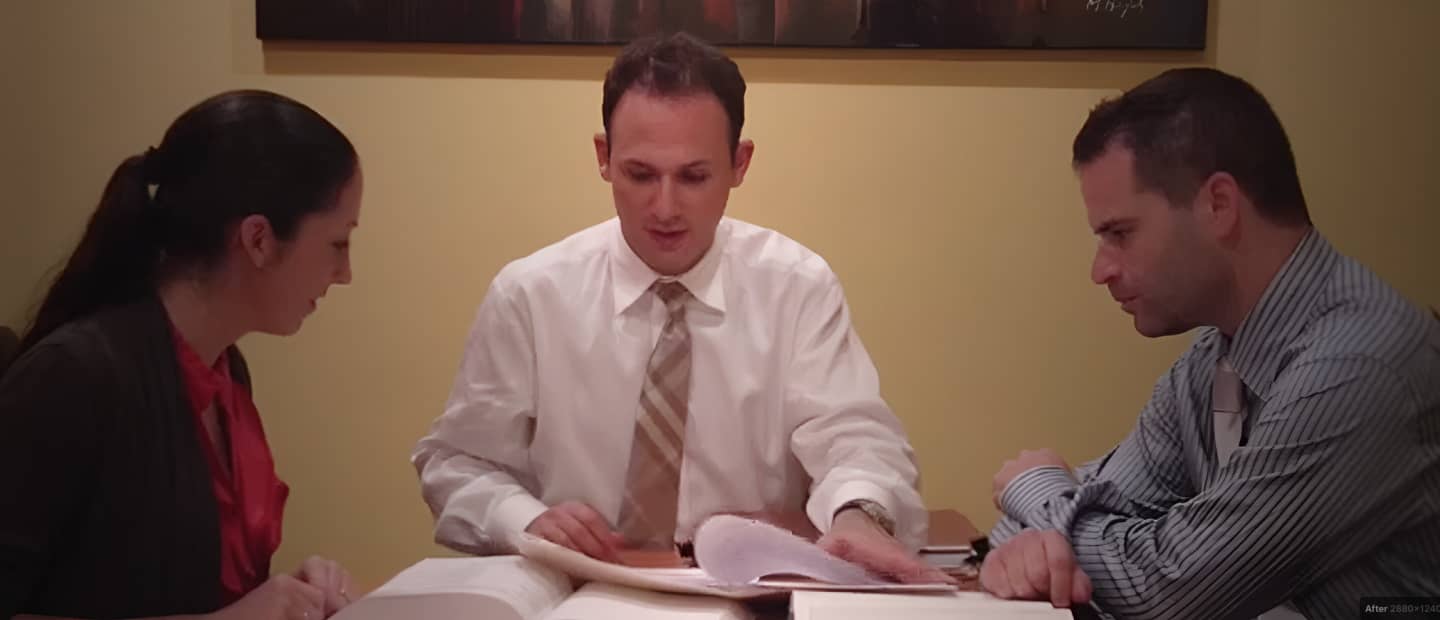Punitive Damages in a Personal Injury Claim
Punitive Damages in a Personal Injury Claim

Fort Lauderdale Personal Injury Lawyer
What are punitive damages?
Punitive damages are an additional source of compensation that courts may choose to award victims (or plaintiffs) in certain cases that involve egregious acts of negligence. Not all cases award punitive damages. Some examples of the types of cases or situations in which punitive damages are applicable and commonly awarded include drunk driving accidents, wrongful death cases, product liability cases, medical malpractice, and others.
Essentially, punitive damages are awarded in order to accomplish several things. First, punitive damages are an added source of punishment. By further punishing the person responsible for causing harm to another, it is more likely that they will not commit the same or similar act in the future. This also serves to accomplish another objective; deterring others from committing the same action. Punitive damages are exemplary, meaning that they set an example to others that such negligence and/or conduct will not be tolerated. Additionally, punitive damages provide victims of such unfortunate tragedies with additional compensation.
Punitive Damages in a Personal Injury Claim & Florida Law
The procedures for punitive damages in civil actions, including personal injury claims, are established and defined in § 768.72 of the Florida Statutes. The statute asserts that in order for a victim to pursue punitive damages, certain legal elements must be highlighted and supported by clear and convincing evidence. Essentially, it must be proven that the person responsible for the victim’s injuries and/or damages acted with intentional misconduct or gross negligence.
Intentional Misconduct
Punitive damages may be awarded if it can be shown that the at-fault party acted with “intentional misconduct.” As defined by the statute, intentional misconduct means that the responsible party knew of the wrongfulness of their conduct and its potential for causing injury and/or damages. Despite knowing of the wrongfulness of their actions and the probability to cause harm, they continued to pursue that course of conduct and caused injury to another.
Gross Negligence
At-fault parties can also be held liable for paying punitive damages when it can be demonstrated that they acted with “gross negligence,” meaning that their conduct was so reckless that it showed a conscious disregard to the life, safety, and rights of others.
Experience in Securing Punitive Damages
Securing punitive damages and maximizing compensation is hinged on the ability to clearly and convincingly present evidence of the at-fault party’s intentional misconduct and/or gross negligence. Having worked a multitude of cases in which punitive damages were permitted, our legal team knows precisely how to highlight these essential legal elements and ensure that clients’ obtain further compensation, if and when possible. Punitive damages can also be pursued in cases where the personal injury claim is filed against a business, corporation, or another type of entity.
Personal injury attorneys Craig Posner and Eric Feingold are both excellent attorneys, but more importantly, they are excellent people. I have seen first hand their hard work and dedication to clients. I would not hesitate to recommend their services to others.
– Matthew T.

Allow Our Legal Team to Secure the Compensation You Deserve
over
10+
of Millions Recovered

Plantation Personal Injury FAQs
When Is It the Right Time to Call a Personal Injury Lawyer?
The right time to call is as soon as possible after your accident. There are many reasons why you need to begin the legal process as quickly as you can. The legal process may even begin without you, with many calls from the insurance company trying to either rush you or to pressure you to give a statement. They may try to catch you unaware and trick you into compromising your legal rights. Hiring an attorney could prevent this from happening.
Equally important, as time passes from the time of your accident, the evidence that could help your claim can become harder to find. People might quickly clear the scene of the accident, and you may lose the ability to contact witnesses. The witnesses that you have may begin to lose their recollection of what they saw. When you hire a personal injury lawyer, they will get to work immediately to gather the evidence before it is lost.
Calling a lawyer to get started on your case is a crucial step in the legal process. Knowing that you have someone on the job with the experience and tenacity to fight for you can give you at least some peace of mind during an undoubtedly difficult time.
How Do Insurance Settlement Negotiations Work?
An insurance claim is just like any other negotiation. You have a number in mind for what you think that you should receive for your injuries, and the insurance company has a much lower number in mind for what it wants to pay. Your insurance claim begins when your Plantation personal injury attorney files a demand letter with the insurance company. This is when the adjuster goes to work to try to save money for their bosses.
The insurance adjuster may outright deny your claim or question liability. They may come back with a settlement offer. When the number seems low, and it will, know that this is just their opening offer. Your Plantation injury attorney will likely reject the offer and respond with your own demand.
Eventually, you will lower your number, and the insurance company will raise theirs, and you could meet somewhere in the middle. This is a time-honored dance that personal injury lawyers have been doing with insurance companies since the advent of courtrooms. Even when you seem very far apart from the insurance company, most cases eventually will settle.
What Happens After I File a Personal Injury Lawsuit?
Filing a personal injury lawsuit is an early part of the claim process. Most cases will never go far enough to see the inside of a courtroom. Statistically speaking, a vast majority of personal injury cases are settled out of court. However, if your case does make it to court, you should expect going into it that the trial process may take one to two years to complete. The legal system is far from rushed, as courts and judges have busy schedules and full dockets.
In the short term, you can expect motions and attempts to obtain evidence. Many people associate a lawsuit with a trial, but that only happens after many months of the nuts and bolts of the legal system. The phase of your case that will take the longest time is discovery. This is when the two sides obtain evidence that the other has in their possession. At this point, you may even need to sit for a deposition.
Filing a lawsuit will not cut off settlement negotiations. As was previously mentioned, most cases will settle without a trial. If anything, litigation may give each side more incentive to settle. The two parties usually continue negotiating right up until the point when the jury is seated.
What Evidence Can Prove My Injury Claim?
Negligence is the basis of every personal injury claim. When you file a lawsuit in court, you have the burden of proof. It will be up to you to show that what you say is more likely than not to have happened. You need to back your claim up with evidence.
Your Plantation personal injury lawyer will work to gather things that can backup your side of the story, including:
— Witness statements from people who say your injury or accident
— Pictures of the scene of your accident
— Security camera footage
— Expert witness testimony that could reconstruct the accident
— Maintenance logs of the area or vehicle involved
— Medical records that can help prove damages
These are things that can be difficult to get on your own and piece together to tell the story of what happened. Injury lawyers in Plantation, Florida, know how to both get the evidence and use it to prove that someone else was responsible for your accident.
What if I Cannot Work Due to My Injuries?
Your personal injury damages include both economic and non-economic compensation. Economic compensation aims to pay you back for the actual money that you lost. This includes bills that you paid and earnings you lost. This specifically pays you back for lost wages from your job when you are unable to work. Since you would have worked, this is money out of your pocket.
Lost wages in a personal injury settlement are much broader than you think. Of course, this includes the time that you have already missed from work. It also encompasses time that you will miss from work in the future. You do not need to outright miss work to receive compensation for this. For example, if you were qualified for a promotion but cannot get it now because your injury limits you in the type of work that you can do, you can get compensation for the reduction in your earning capacity.
Lost wages are often a very contested part of your personal injury claim because you can bet that the insurance company will see things differently to try to lower its bill. They may dispute what your possible earnings are or use a lower rate of inflation to calculate what they may be in the future.


Hear It From Our Clients
“Ace Your Case Excellent Attorneys”
Personal injury attorneys Craig Posner and Eric Feingold are both excellent attorneys, but more importantly, they are excellent people. I have seen first hand their hard work and dedication to clients. I would not hesitate to recommend their services to others.
“Great Guys Who Take Their Job Seriously”
Great guys who take their job seriously. They took care of me when I had my accident and made sure I was walked through 100% of the way.
“Pleasure And Blessing To Have Ace Your Case Represent My Family”
It has been a pleasure and blessing to have Ace Your Case represent my family. They always kept me updated on our case. The staff was excellent they always got back to me on questions I had. I highly recommend them and will continue to use them if needed.
“Not Only Very Efficient But Caring As Well”
These lawyers are not only very efficient, but caring as well. I would not hesitate to refer them to anyone.
“I Highly Recommend Them!”
Big thanks to Eric and Doug for doing a great job with the handling of my auto accident. I highly recommend them!


